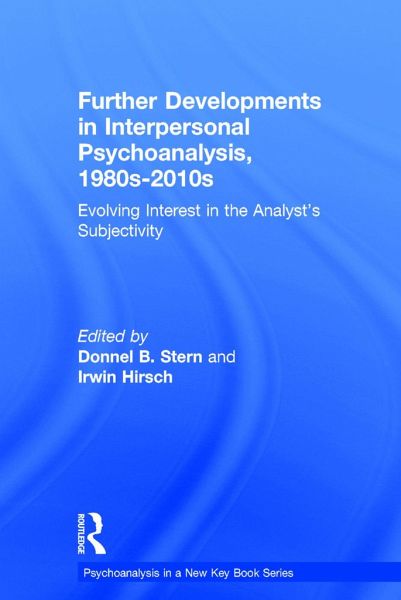
Further Developments in Interpersonal Psychoanalysis, 1980s-2010s
Evolving Interest in the Analyst's Subjectivity
Herausgeber: Stern, Donnel B.; Hirsch, Irwin
Versandkostenfrei!
Versandfertig in 1-2 Wochen
159,99 €
inkl. MwSt.
Weitere Ausgaben:

PAYBACK Punkte
80 °P sammeln!
Further Developments in Interpersonal Psychoanalysis, 1980s-2010s is the second collection of selected classic articles of the modern era by psychoanalysts identified with the interpersonal perspective. This book contains those written by the third and fourth generation of interpersonal psychoanalysts.














